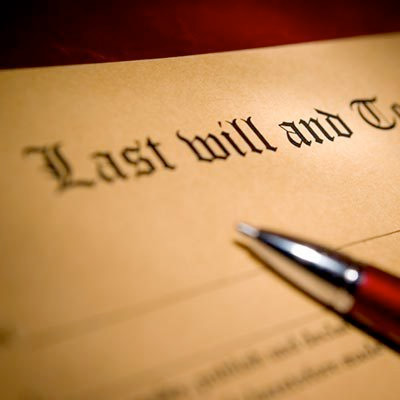Understanding probate in house sales
Posted on: 17/06/2021The legal procedure of selling someone’s property after they pass way is probate. Most often, the deceased will already have provided a name for the person to oversee their estate i.e. the executor. Sometimes a case may arise that requires you or another beneficiary to make an application for probate. These three cases are:
- In the case a will was not left by the deceased.
- An executor hasn’t been listed (even if they did leave a will).
- The chosen executor declines the role.
The executor of the property, after being named and accepting the role, is responsible for organising the probate house sale.
In this article we will look at:
- Amount of time executor has to sell a property
- Can you sell a house before probate?
- Is approval need from all beneficiaries to sell a property?
- Can executors transfer properties to themselves
1. Amount of time executor has to sell a property?
After initially being named as the executor of a property, you actually aren’t under pressure to meet any specific time restraints in terms of selling a house in probate. This ensures you can take ample time to go through every process properly.
Once all options have been considered and the house is ready to sell, the court can set a reasonable deadline for finishing the probate house sale. However, there are typically no strict timeframes set for selling a house in probate, and many courts extend the process into the subsequent year.
2. Before probate, can you sell a property?
Oftentimes, people feel pressure to sell a house quickly but forget to consider the various factors that can impede the process. Maintain patience throughout the process of putting the house on the market and accepting an offer. You must understand that you will not be able to exchange contracts and complete a sale before executor status is confirmed.
Other typical delays include:
- No probate house sale will occur until the property has been cleared of the deceased’s belongings. Keep in mind that this task requires time and patience, especially when considering that each beneficiary has their own busy life to tend to. When preparing the property to sell, you can assume the process of clearing out this house will take weeks, if not months.
- The open market can pose another serious challenge if the house is struggling to sell. You might consider altering your strategy if you are having trouble getting viewings and offers on the home. Rather than waiting for favourable conditions or counting on real estate agents to pull through, you can consider selling the house faster through a verified property purchasing company. Good Move is positioned to make an instant cash offer for up to 85% of market value.
3. Is approval needed from all beneficiaries to sell a property?
As the executor of the property you want to sell the property, but you might find yourself wondering if it’s possible to sell it on your own. Well, the executor is responsible for all proceedings regarding the deceased’s assets. So it’s important to take numerous things under consideration when naming an executor of your property, including:
- How organised are they?
- Can you trust them?
- Do they understand the complexities of probate?
Ultimately, the property executor is accountable for handling the entirety of the deceased’s estate. This means they have the final word when selling a house in probate. In addition, they aren’t required to obtain written permission from each beneficiary. Despite this responsibility, the process is not entirely autocratic. In fact, one of the main roles of the executor of property is to guarantee all choices made regarding the will reflect the best interests of the beneficiaries involved.
The biggest point of discussion between beneficiaries and the executor tends to be the inherited property’s sale price. Once all concerns have been communicated, the executor should consider each point of view, but ultimately have the power to sell the estate for a price they deem fair.
4. Can executors transfer properties to themselves?
The job of the executor is to deal with the estate of the dead person for all beneficiaries. In some cases, the executor may have a share of the inheritance, making it appropriate for them to pass houses to themselves or at least a share thereof.
If they are the only named beneficiary, they inherit the entire worth of the deceased’s estate.
The executor typically makes the final decision when selling a house in probate. However, there may be a situation in which the executor wishes to buy the house themselves. In this case, they need to agree on a reasonable price with the other listed beneficiaries. The easiest method to determine a fair price is to undergo a professional valuation by an objective third party.
Thoroughly understanding the probate house sale process will help you handle the deceased’s estate fairly and effectively. Check out more of our articles for even more expert selling advice.
UK property buyers for cash. Company Number: 12669628




